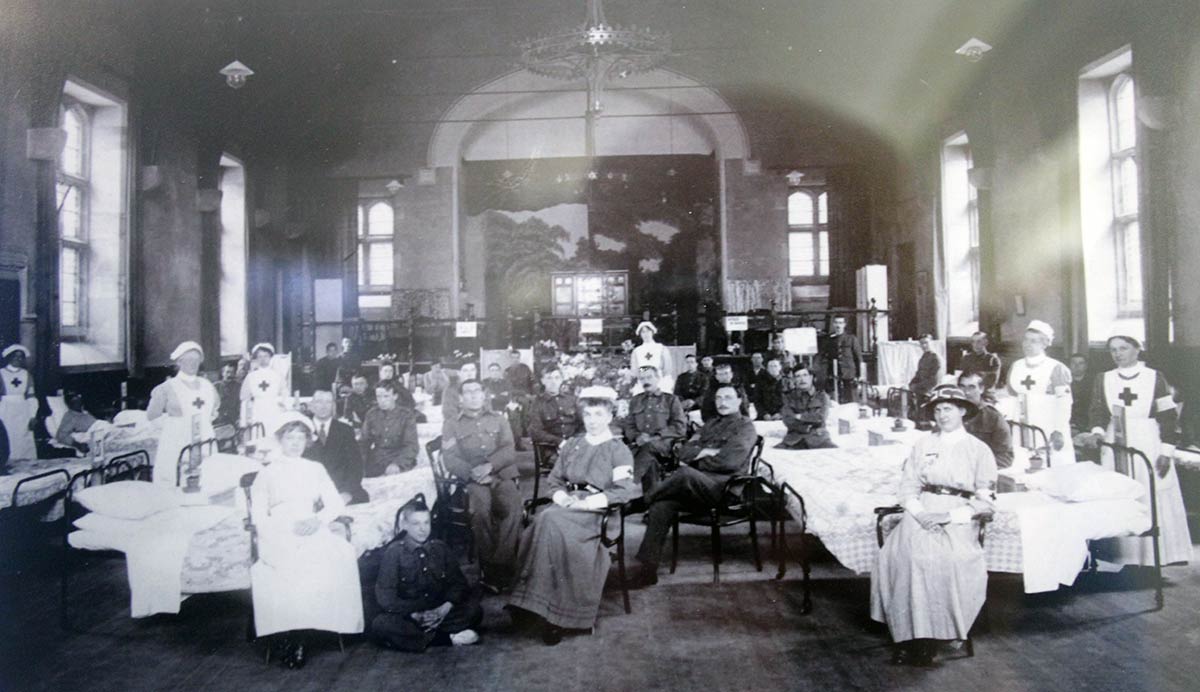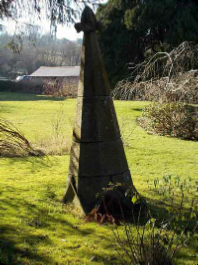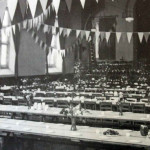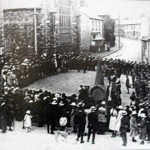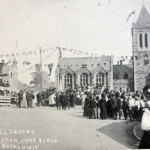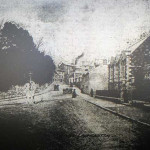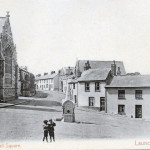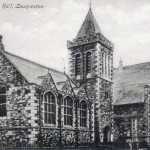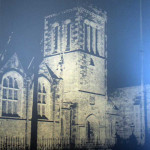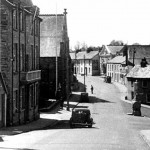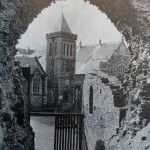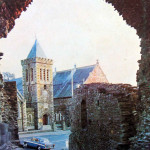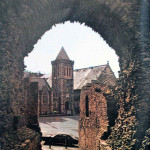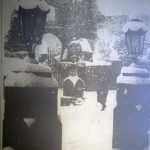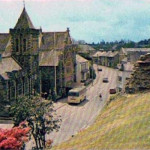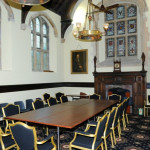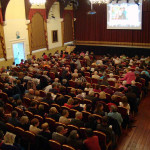.
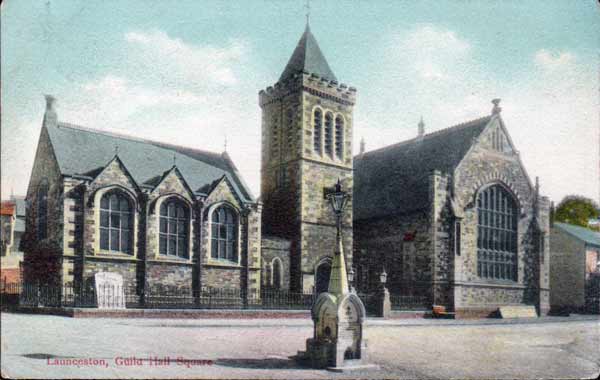
Guildhall
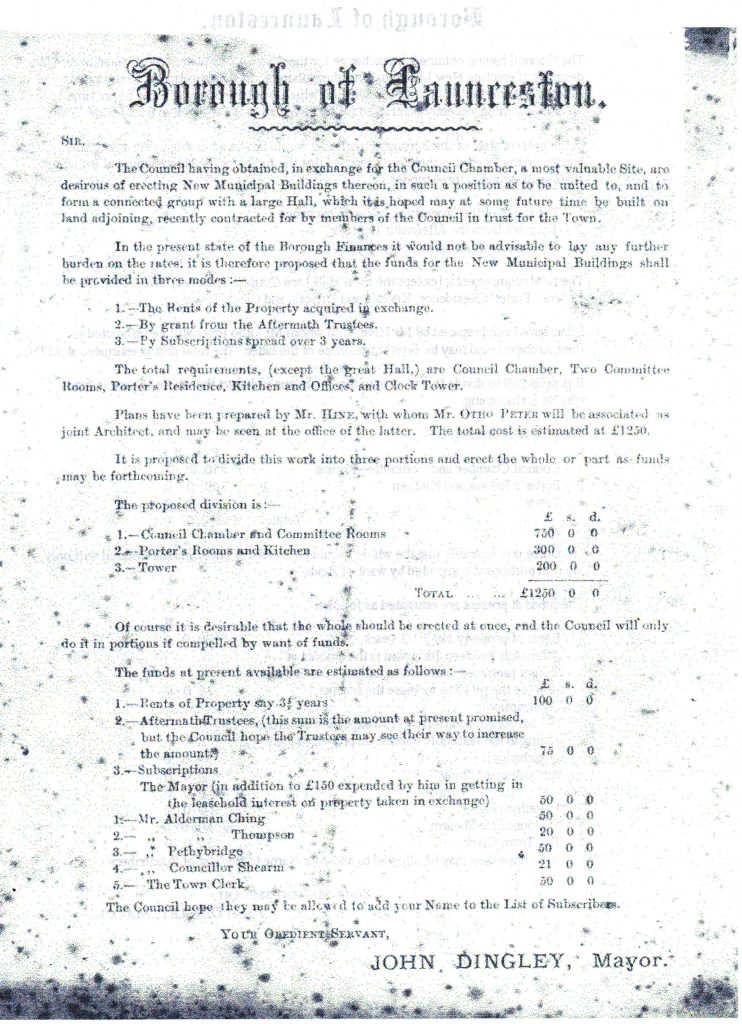
With the removal of the County Court in 1835, the old Guildhall that stood in the town centre was demolished. However, it wasn’t until 1850 that a new Municipal hall was built with the foundation stone being laid by the Duke of Northumberland (who paid for the total construction cost on the 16th of July 1850). The hall was built between the Church and the Tower on land purchased by the Duke. However, the Vicar of St. Mary’s church took it upon himself to use the hall as a robing room, which caused conflict with the councillors who in the end decided to erect a new guildhall in 1881 with the construction of the present day Guild Hall opposite the Castle entrance on Western Road. The foundation stone being laid on September 30th, 1881. In the September of 1883 iron railings were added to enclose the new building, with the work being carried out by Mr. Strike.
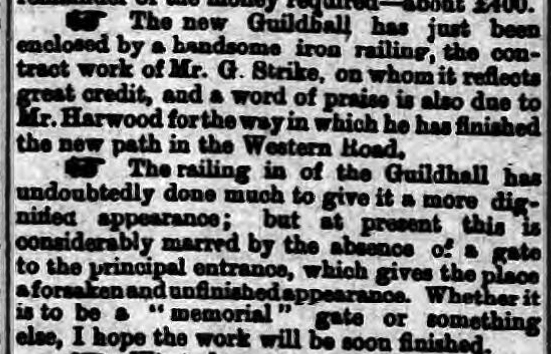
Town Hall
In 1886, tenders were invited for the building on land that were gardens adjacent to the Guild Hall. Mr. E. Rendle of Stoke Climsland was awarded the contract with a tender price of £1,835. The building was designed by Mr. Otho B. Peter of Launceston and Mr. G. Hine of Plymouth. At the same time, a fire engine house was built which is now used by the Launceston Amateur Dramatics Society.
The Foundation Stone was laid by The Lord Chancellor of Britain, Lord Halsbury, and Miss C. Pearce on Thursday the 30th of September 1886 with the construction completed by the following year.
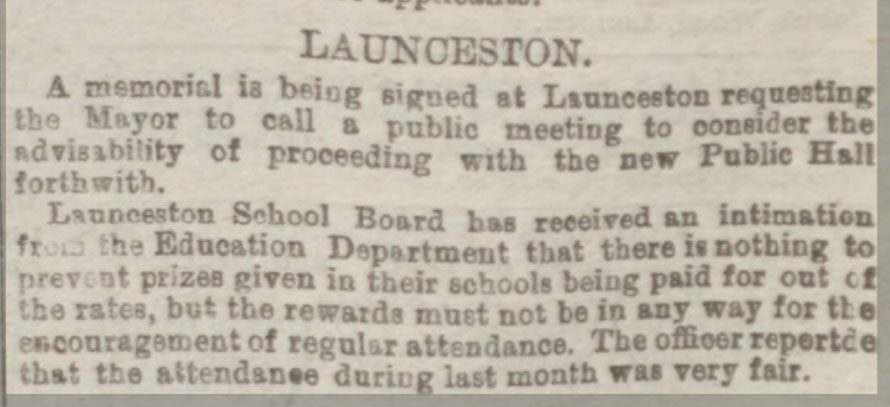
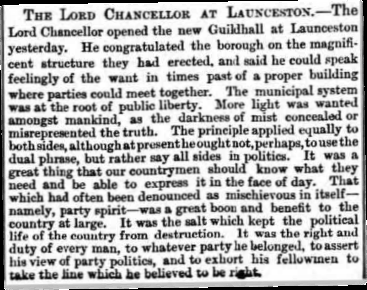
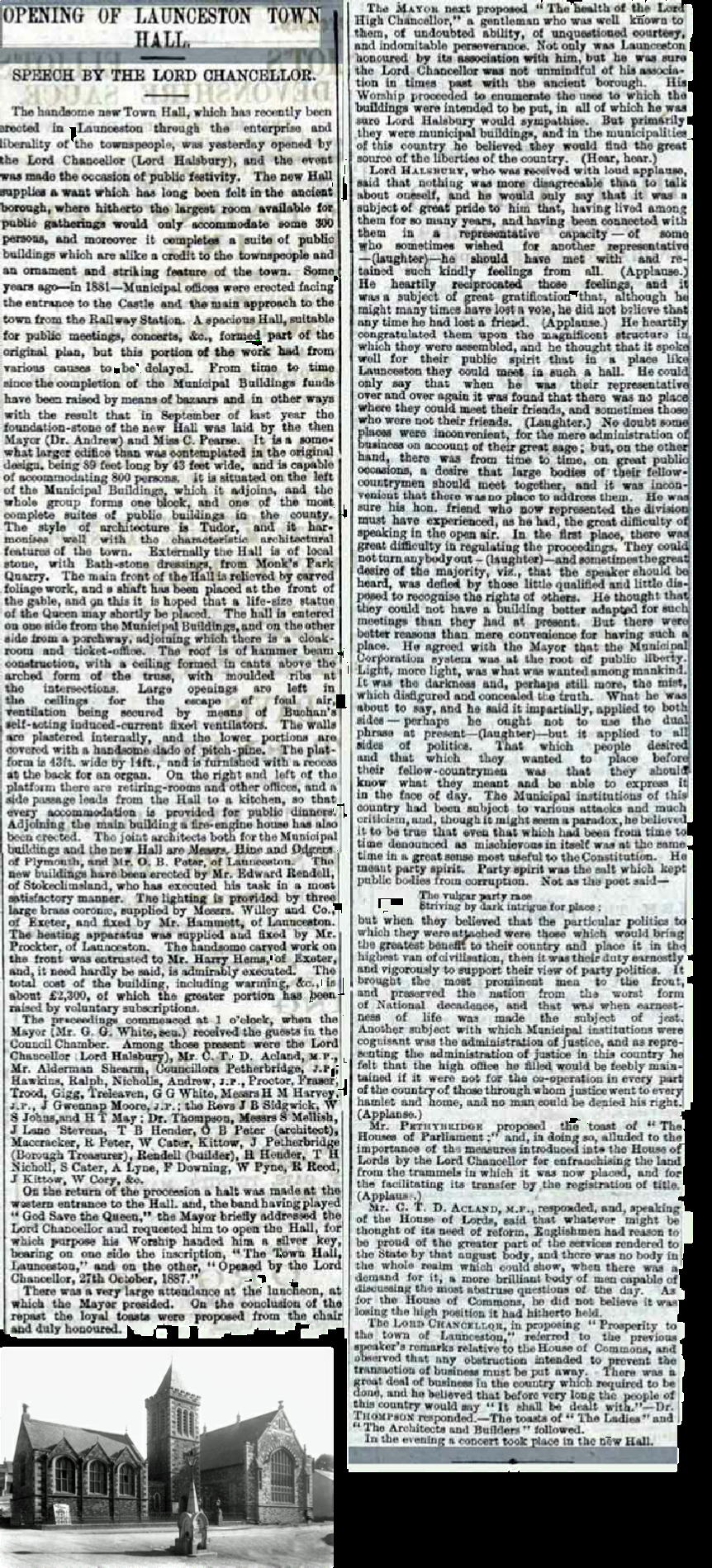
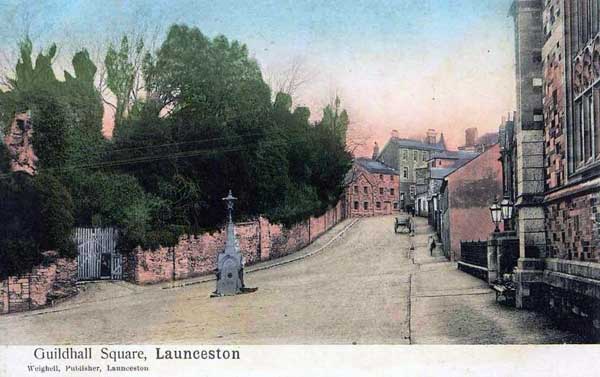
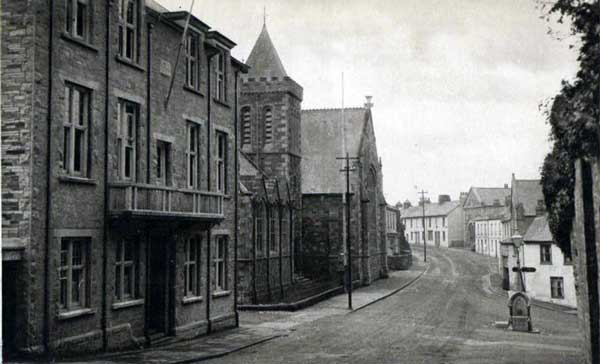
Lord Halsbury was duly on hand to open the new building at a ceremony held on the 27th of October 1887. The total cost of the building was £2,300 most of which was raised through voluntary subscriptions. The opening ceremony started at 1 o’clock in the afternoon with the Mayor, Mr. G. G. White, receiving his guests in the council chamber before leading them through to the the western entrance of the hall where the band played ‘God save the Queen’. The Mayor briefly addressed the Lord Chancellor and requested him to open the Hall, handing him a silver key, bearing the inscription on one side ‘The Town Hall, Launceston’ and on the other ‘Opened by the Lord Chancellor, 27th October 1887’. There followed a largely attended luncheon with toasts proposed at its conclusion. In the evening the new Hall was christened with its first concert.
Tablet in Guildhall:
To Commemorate The Services of Lt. EG Cowlard; Cpls. JW Congdon & EI Medland; Ptes. W Cann, WT Jory? EG Jones, S Prout of the Launceston Detachment 2nd Vol. Bn. D.C.L.I. Also of Sgt/Major MP Wevill of Locke’s Horse in the South African War, 1900-1.
Edward George Cowlard died at Springfontein, March 1901. Maurice Palmer Wivell died at Krondstadt October 1900. This Brass is Placed Here By Friends & Fellow Townsmen.
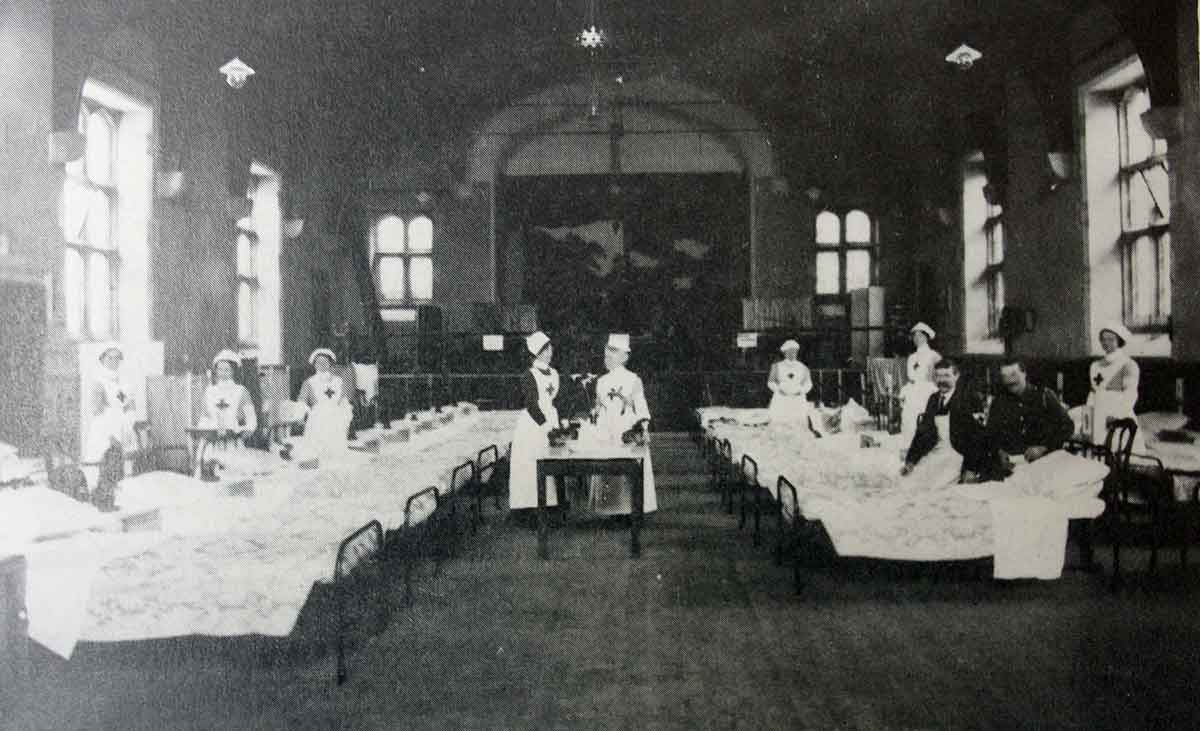
Over the years the town hall has been used for all kinds of events and meetings, such as musicals, concerts, pantomimes and during the first world was a V.A.D. Hospital (above). Both the Guildhall and Town Hall were rewired in 1957 with the work being carried out by W. W. Bailey. In 2012 the Hall went under a complete renovation to bring it into the 21st century being officially opened by Prince Charles and is now more popular than ever with even a cinema operating once a month.
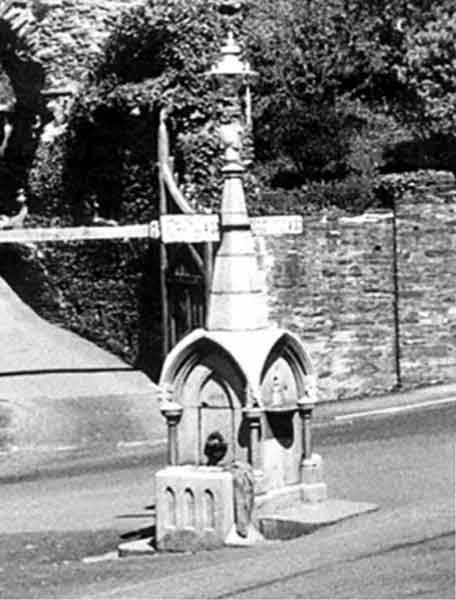
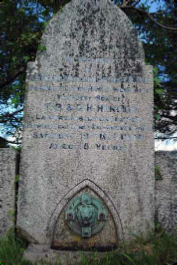
To the fore is the Hender memorial Fountain (above left), demolished and most of it dumped to make way for road improvements. Part of the base was recovered and placed by the Windmill reservoir (above centre) and the top was saved by a workmen and is now a feature in a Altarnun garden (above right).
Launceston Guildhall Gallery.
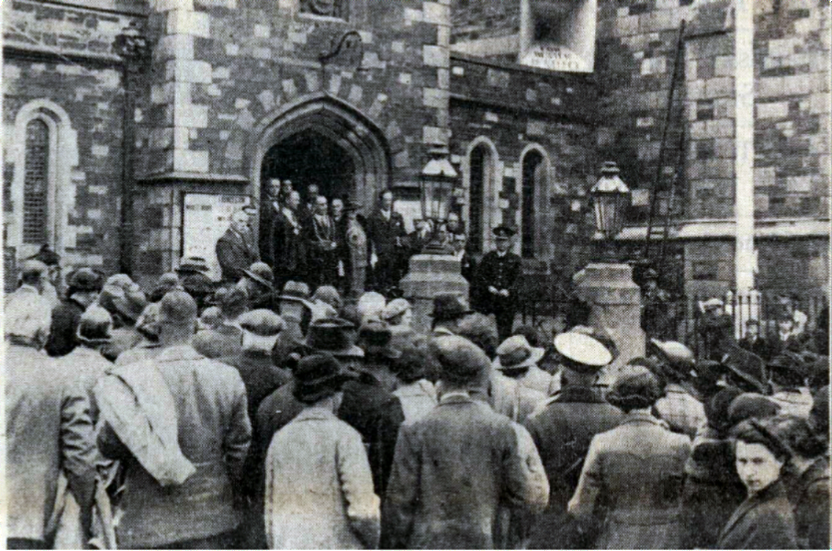
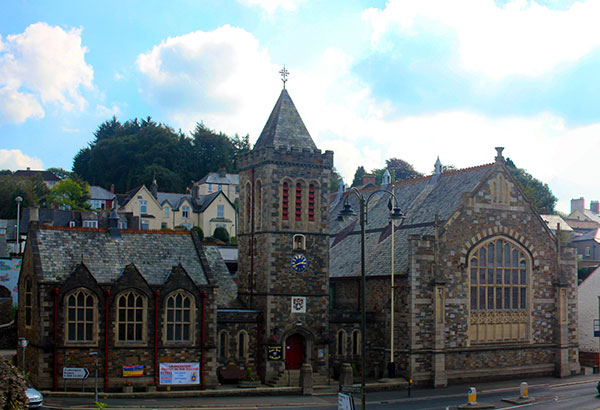
Visits: 193

